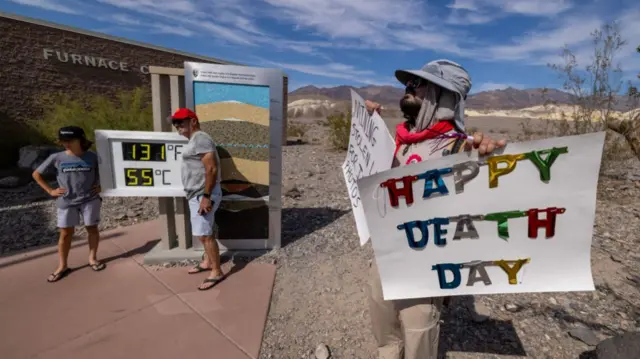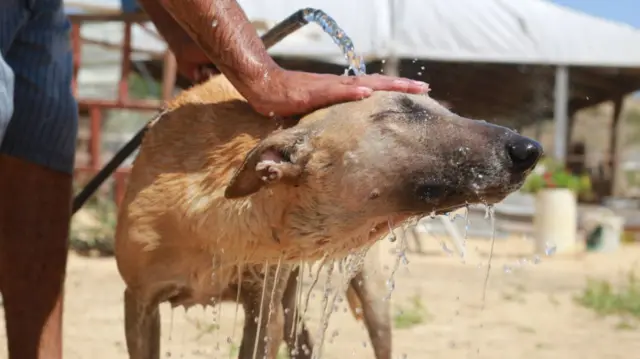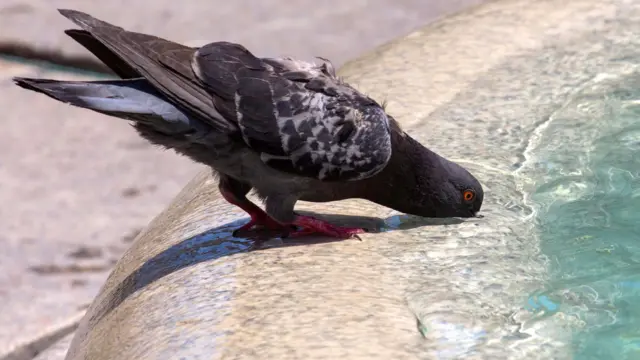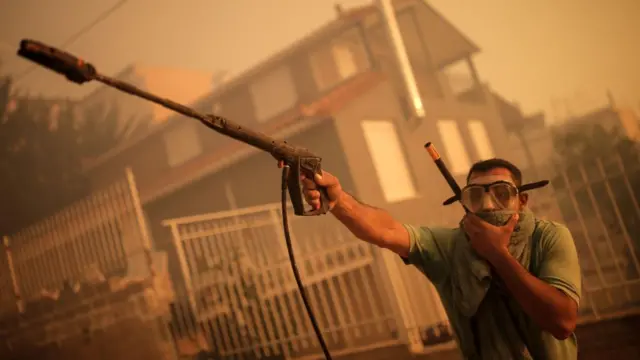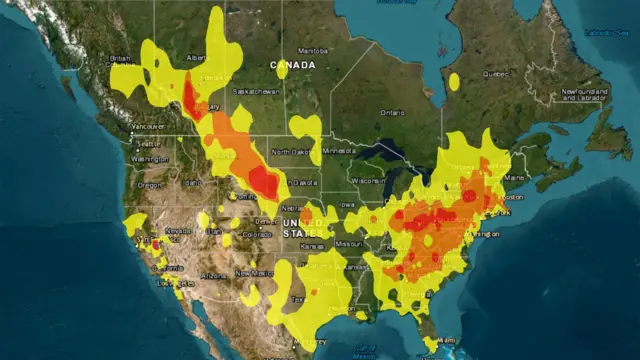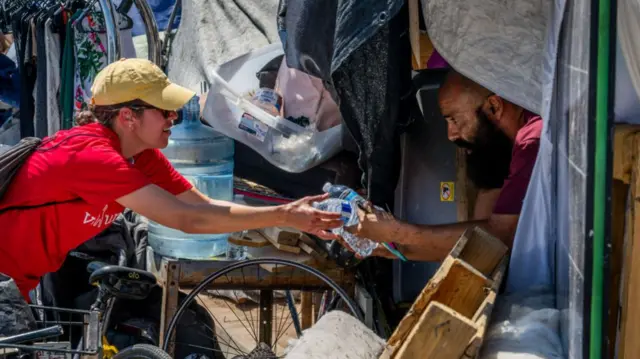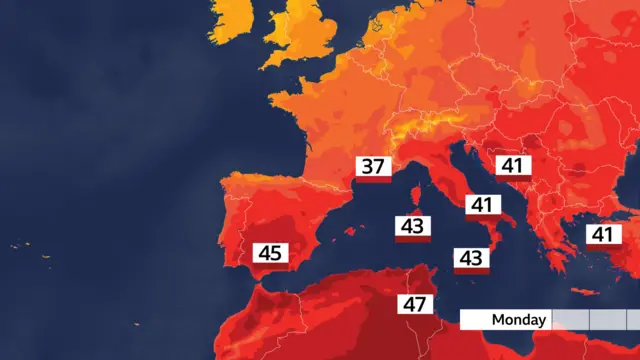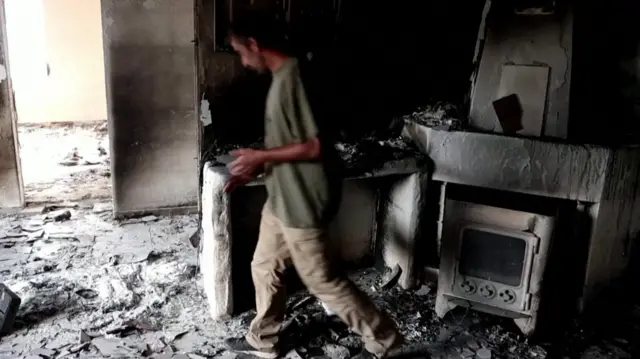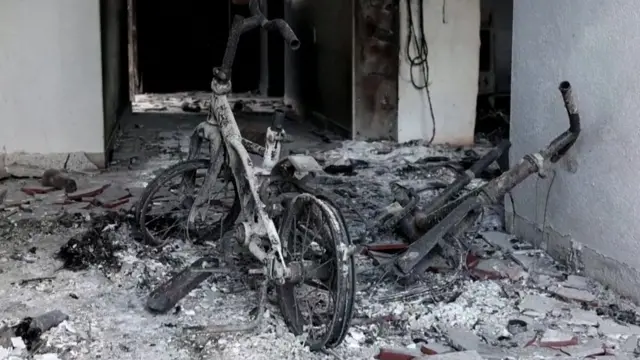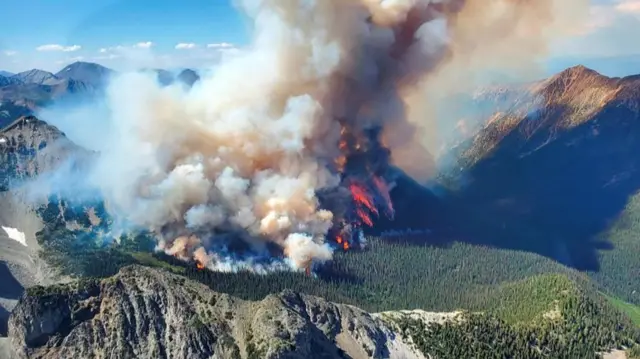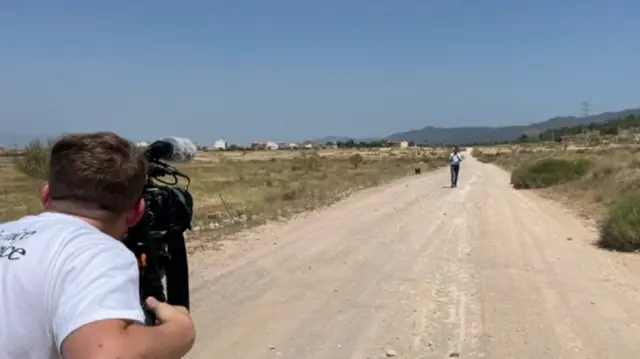Watch: Helicopters battle wildfire in Switzerlandpublished at 00:17 BST 18 July 2023
A large forest fire has broken out above Bitsch in Valais, Switzerland - a region famous for alpine resorts and the Matterhorn.
This video from earlier shows helicopters try to douse the flames.
There are about 150 firefighters and 25 police at the scene, but the fire is still burning out of control and spreading rapidly.
A recent update, external from local police said hamlets in the area have been evacuated.
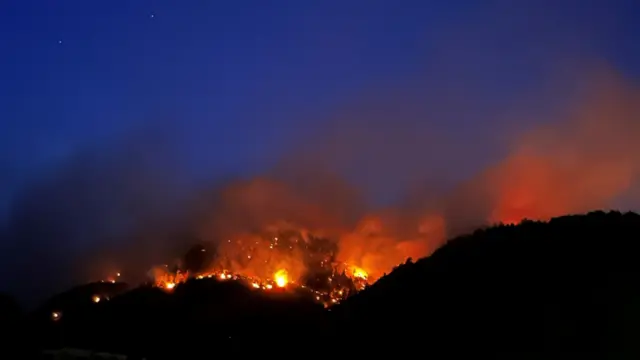 Image source, Canton Police of Valais
Image source, Canton Police of Valais